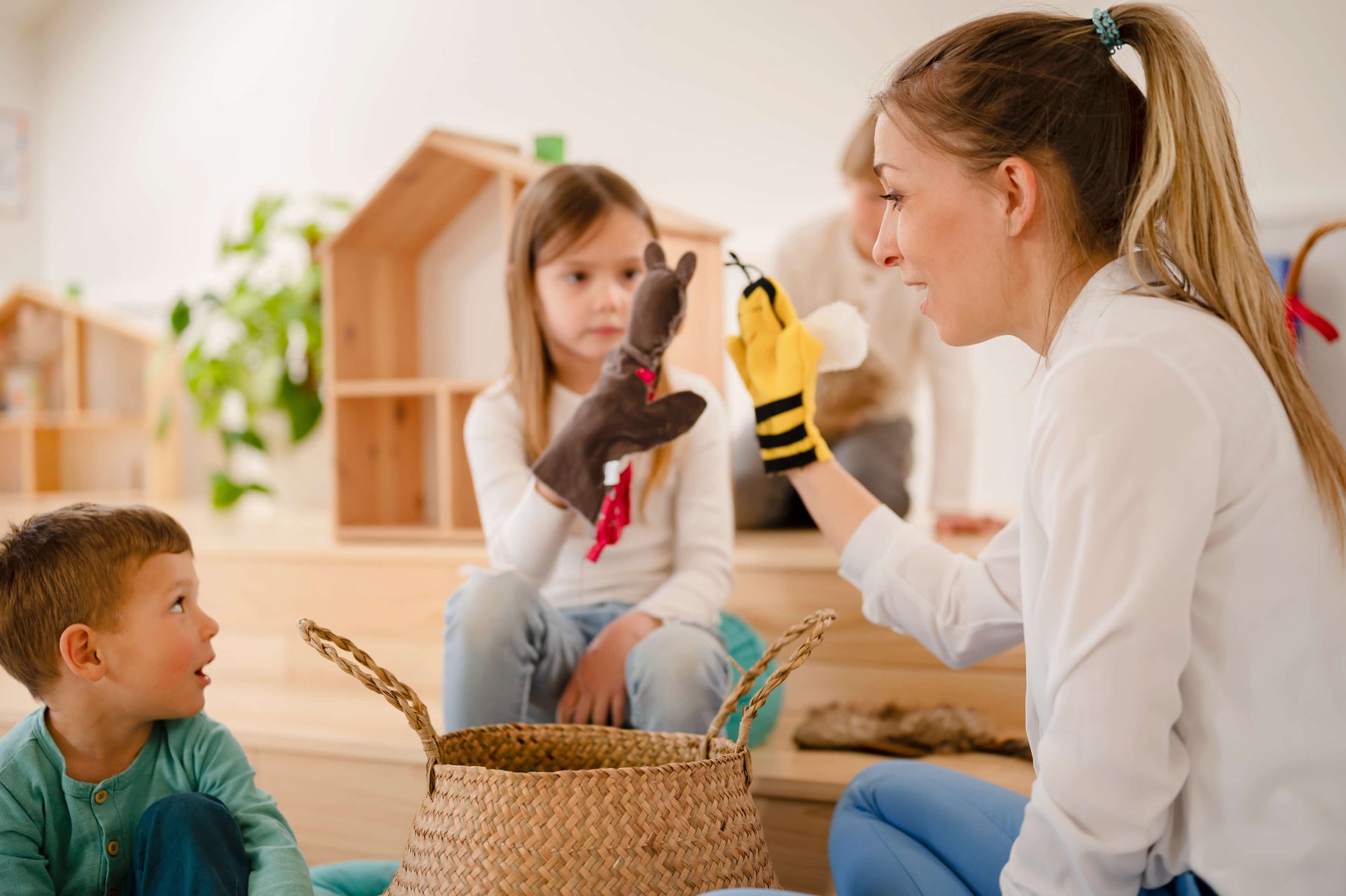
Puppetry in Education: Enhancing Learning Through Puppet Play
Puppets are loads of fun to play with, and they’re also a great tool in the classroom. Many peer reviewed, published studies have been conducted over the past decades showing the effectiveness of learning through puppet play, particularly in the area of enhancing language skills, personal confidence, creativity and group work.
"Puppetry is a powerful tool for stimulating the imagination of children. Through puppetry, they can explore new worlds, create stories, and express their creativity." — Jim Henson (Puppeteer, animator, inventor, filmmaker)
Geppetto’s Workshop believes in learning through creative play, and we have been a trusted source of puppets and resources for educators for decades. Here, we explore the different benefits of puppetry in education: enhancing learning through puppet play.
Evidence Based Research Findings
While there is evidence of puppets being used in education in ancient China, India and Greece, academic research into this field became very popular in the 20th century. In particular, academic focus on the use of puppets by teachers and therapists was extensive in Western education and continues now. Recent new edition publications by authors such as Dr. Judith K. Schickedanz encourage the use of puppets to assist children express creatively story-telling. Published in May 2022, PhD thesis publications by Leanne Guihot-Balcombe of College of School of Education & Arts at the Australia’s University of Newcastle, found that “… use of puppets in the classroom enriches holistic growth in young people. In fact, almost all participating students grew in confidence.”
The effectiveness of puppetry in group education and individual development is unquestioned. The research is readily available to teachers and can provide the basis for writing new class plans and individual development plans. Geppetto’s Workshop staff have helped countless educators source, enjoy and develop their handling skills with puppets for years.
Puppets as a language learning tool
Recent publications show solid, scientific evidence of puppetry having benefits in education, especially in language and non-verbal communication. According to research in both Canada, Australia and the UK, puppetry can advance children’s development of communication skills and can help increase and improve general interpersonal interactions. Carefully managed, this can benefit the entire classroom by creating a relaxed atmosphere thereby improving the teacher-student and student-student interactions. You can read more about these studies here in this Cambridge University article.
-
Speech
Speaking skills can be difficult to practise in an environment in which teachers dominate the floor in terms of talking. Puppets give kids a chance to practise their public speaking in a creative, relaxed environment. -
Comprehension
Reading comprehension plays a large role in the classroom, but aural comprehension is equally important. Puppetry is a way to enhance aural comprehension skills as children are forced to listen to the content without a human visual aid - i.e. the movement of a teacher’s lips, or body language. Instead, every word is simply being heard by students, improving aural comprehension skills. -
Self-confidence
Puppets provide a chance for children to be themselves in front of other children. Controlling a puppet to ‘speak through’ can be a stepping-stone to the confidence required to speak publicly yourself. -
Developing imagination
While modern electronic forms of play, like console and iPad games, are convenient, they don’t exercise the imagination of children as much as activities like puppetry. Puppets open a new world of opportunity within a classroom and are the very tools to encourage children to think creatively. Puppets are the tools to inspire children to be brave, to act out their thoughts and build stories of their own.
"Puppets speak to everyone - children and adults alike - because they communicate through images, stories, and emotions. They transcend language and culture." — Carol Sterling (Educational Puppeteer and Fulbright Specialist)
